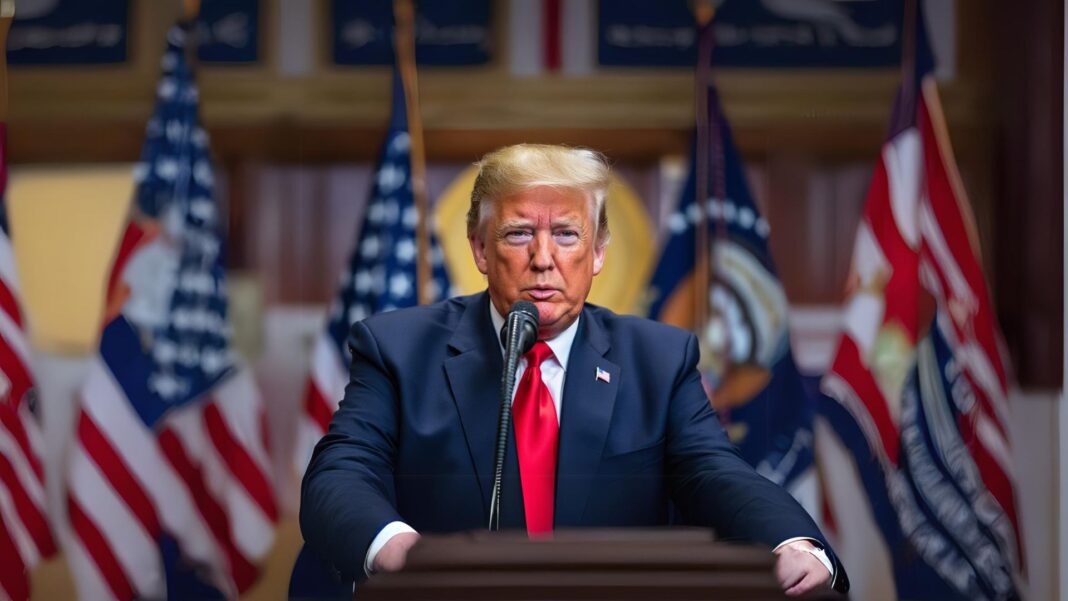In a recent statement, former U.S. President Donald Trump voiced his opinion on Bitcoin, asserting that the cryptocurrency itself does not pose a threat to the U.S. dollar. Instead, he pointed to the actions and policies of the current U.S. government as the real threat to the dollar’s stability. Trump’s comments reflect a growing sentiment among some policymakers and financial analysts, who argue that inflation, excessive government spending, and regulatory uncertainty are weakening the dollar more than external factors like cryptocurrencies.
The dollar, as the world’s reserve currency, has long stood as a symbol of economic stability. However, recent economic policies, including large-scale spending packages and debt accumulation, have raised concerns about its long-term strength. Trump’s remarks highlight a viewpoint that suggests the government’s fiscal decisions, such as raising the national debt and implementing monetary policies that can drive inflation, are far more impactful than Bitcoin on the dollar’s status.
Cryptocurrencies, particularly Bitcoin, have often been viewed as an alternative to traditional financial systems. However, Trump’s statement suggests that the strength of the dollar is inherently tied to responsible governance. He implies that the dollar’s position could be fortified not by regulating or restricting crypto assets but by ensuring sound fiscal and monetary policies.
Bitcoin advocates often argue that cryptocurrency offers a hedge against inflation and government policies that devalue fiat currencies. Trump’s view contrasts somewhat with these perspectives but underscores a broader conversation about the dollar’s future, global monetary policy, and the role of alternative assets like Bitcoin in modern finance.
Looking Ahead: Bitcoin’s Place in a Shifting Economy
The former president’s remarks invite reflection on Bitcoin’s role in an economy marked by concerns over fiat stability. While some believe that Bitcoin could complement or even challenge traditional currency frameworks, Trump’s statement implies that restoring the dollar’s strength may depend on government reforms rather than resistance to digital assets.
In an era where crypto is increasingly mainstream, this perspective underscores that the dollar’s future may depend on responsible policy choices. This brings attention to how traditional and digital finance sectors might coexist, adapt, and evolve alongside the political landscape.



